US groups flock to ASEAN to further aid business interests
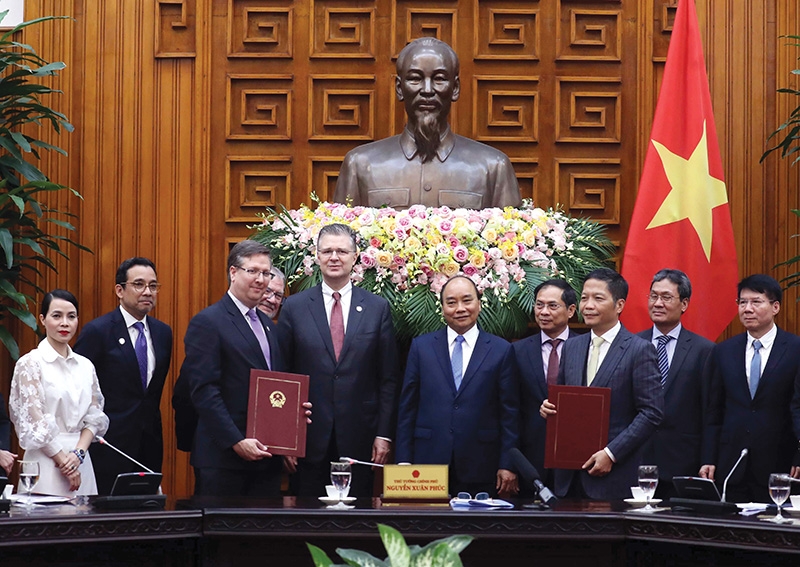 |
| Prime Minister Nguyen Xuan Phuc met with representatives of the US-ASEAN Business Council last week Photo: VNA |
The largest-ever group of 19 healthcare and pharmaceutical titans among the 45 members of the US-ASEAN Business Council took a trip to Vietnam last week to work with the government and local partners on new projects and co-operation programmes.
Some of the giants represented on the trip included Abbott, 3M, GSK, Herbalife Nutrition, Johnson & Johnson, Novartis, and Pfizer.
“There are many opportunities in the healthcare industry. Many US-ASEAN companies have made plans and are working on procedures for some projects, and are awaiting approval from the Vietnamese government,” said Michael W. Michalak, senior vice president and regional managing director of the US-ASEAN Business Council and a former US ambassador to Vietnam.
Vietnam, where drug imports increased 8.8 per cent on-year in 2018 to $3.7 billion and which is seeing increasing per capita drug spending, is on the radar of US-ASEAN businesses. “If potential projects and co-operation agreements are approved, US investment in Vietnam will increase to new figures,” Michalak told VIR.
Stronger investment shifts
Pharmaceuticals and healthcare are grabbing the attention among US-ASEAN businesses in Vietnam, closely followed by energy, manufacturing, logistics, finance and banking, and fintech. Groups are working with Vietnamese companies to form joint ventures, while many others are looking to shift supply chains to Vietnam.
For instance, in energy, GE has increased investment in its factory in the northern port city of Haiphong, and is planning to expand further, while AES Corporation has received a license to develop a liquefied natural gas complex in the south-central province of Binh Thuan.
Meanwhile, Novartis, GSK, and Pfizer – the leading producers of medicines and vaccines – have acted as important players in the medicine supply chain. Novartis posted good performance in 2019, with the value of the group’s medicines in the country reaching more than $120 million. It also inaugurated its new legal entity, Novartis Vietnam Co., Ltd., in order to expand further.
Vu Tu Thanh, chief Vietnam representative of the US-ASEAN Business Council, elaborated that many tech corporations in Silicon Valley have plans to shift their electronic manufacturing investment to Vietnam, probably via direct investment or through a third party. In addition, leading US retailers are also looking to increase imports of Vietnamese goods in their supply chains. “The shift in manufacturing will lead to the expansion of logistics businesses to meet the demands, and new investment in logistics will be made in the coming time,” Thanh noted.
The investment shift among American corporations to Vietnam has ratcheted up in recent times, driven by the US-China trade tensions. Many companies have been investigating the potential of investing in Vietnam, particularly as the trade dispute inspired the shift in supply chains away from China and into the ASEAN. The trend is being somewhat reinforced currently, with China being hardest hit by the global COVID-19 epidemic.
The US-ASEAN trip went ahead despite the current outbreak, reflecting their strong determination to explore business and investment prospects in Vietnam. With Vietnam curbing new cases of the virus for several weeks, and with all previous cases recovered, the country is maintaining its status as a secure and safe environment for members of the council to make long-term investments.
Alexander C. Feldman, president and CEO of the US-ASEAN Business Council, said that the COVID-19 has made impacts on US-ASEAN businesses, especially those in the tourism industry. Sales of related businesses in Vietnam reportedly fell 50 per cent in February alone – however, Feldman has yet to hear of US companies considering delay of funding decisions within the country.
Echoing Feldman’s view, Michalak of the council said, “The government efforts to control the epidemic have won much confidence from US-ASEAN businesses. Many American investors are planning to expand operations to and in Vietnam.”
Recommendation focus
To support its members’ current operations and future plans in Vietnam, the US-ASEAN Business Council held 32 meetings with the Central Economic Commission, and many ministries, such as the Ministry of Industry and Trade (MoIT), the Ministry of Transport, and the Ministry of Health (MoH) during a four-day trip last week. Focus involved the proposals on supporting policies for its members while giving recommendations towards a number of plans that the government is taking to streamline procedures, open market access, and make trade and investment easier, putting those into practice as soon as possible.
At the meeting with the MoIT, the two sides agreed to deal with trade barriers to strengthen bilateral trade ties. US-ASEAN members also sought for favourable drug imports and tenders at the meeting with the MoH.
While highlighting the country’s efforts to further improve the business climate, Michalak also proposed that Vietnam improves its regulatory environment and digital economy regulations so that it will be better prepared for the end of COVID-19.
“The challenge for Vietnam is to make sure that when this episode ends, and as we know from past experience, Vietnam should be prepared with the policies that facilitate trade policies that restructure the open markets and provide a welcoming environment for investment to show that it has sprung back,” said the former US ambassador. Opportunities for Vietnam to lure more US-ASEAN investment are expected to widen this year with the country holding the role of bloc chair. Accordingly, Vietnam will take measures to become an effective bridge to connect the ASEAN with other countries worldwide.
This year will be also an important one for Vietnam’s trade and investment with the upcoming landmark enforcement of the EU-Vietnam Free Trade Agreement, which will help the country enjoy increased attraction from the ASEAN – a common market of 600 million people and total GDP of nearly $3 trillion.
According to statistics from the Ministry of Planning and Investment, Vietnam attracted over $42 million of US investment in the first two months of 2020, ranking 11th among countries and territories with investment in the country, thus raising the US’ accumulated total to over $9.3 billion.
Feldman noted that a bilateral free trade agreement between Vietnam and the US could happen, which would further facilitate bilateral investment and trade ties.
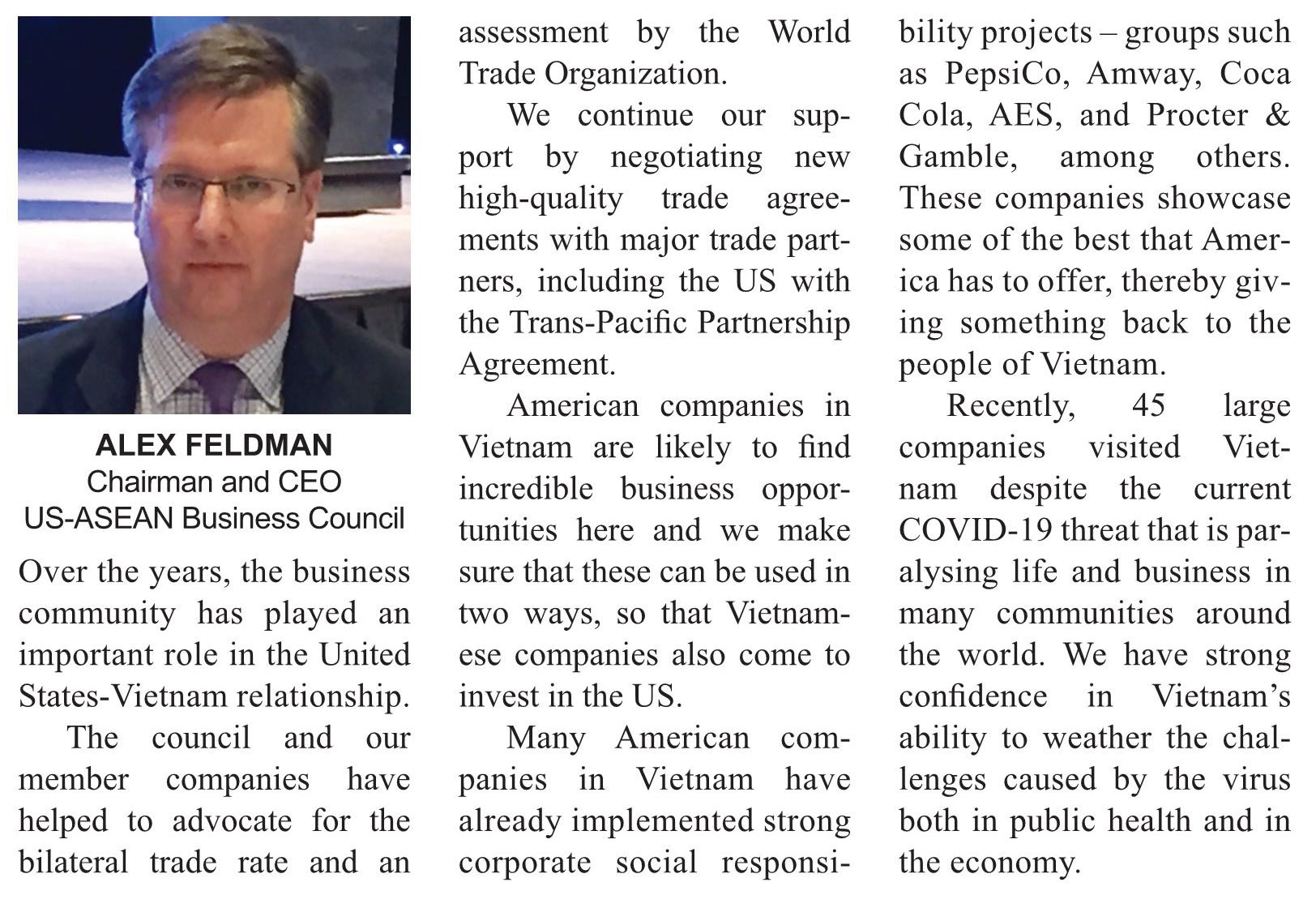 |
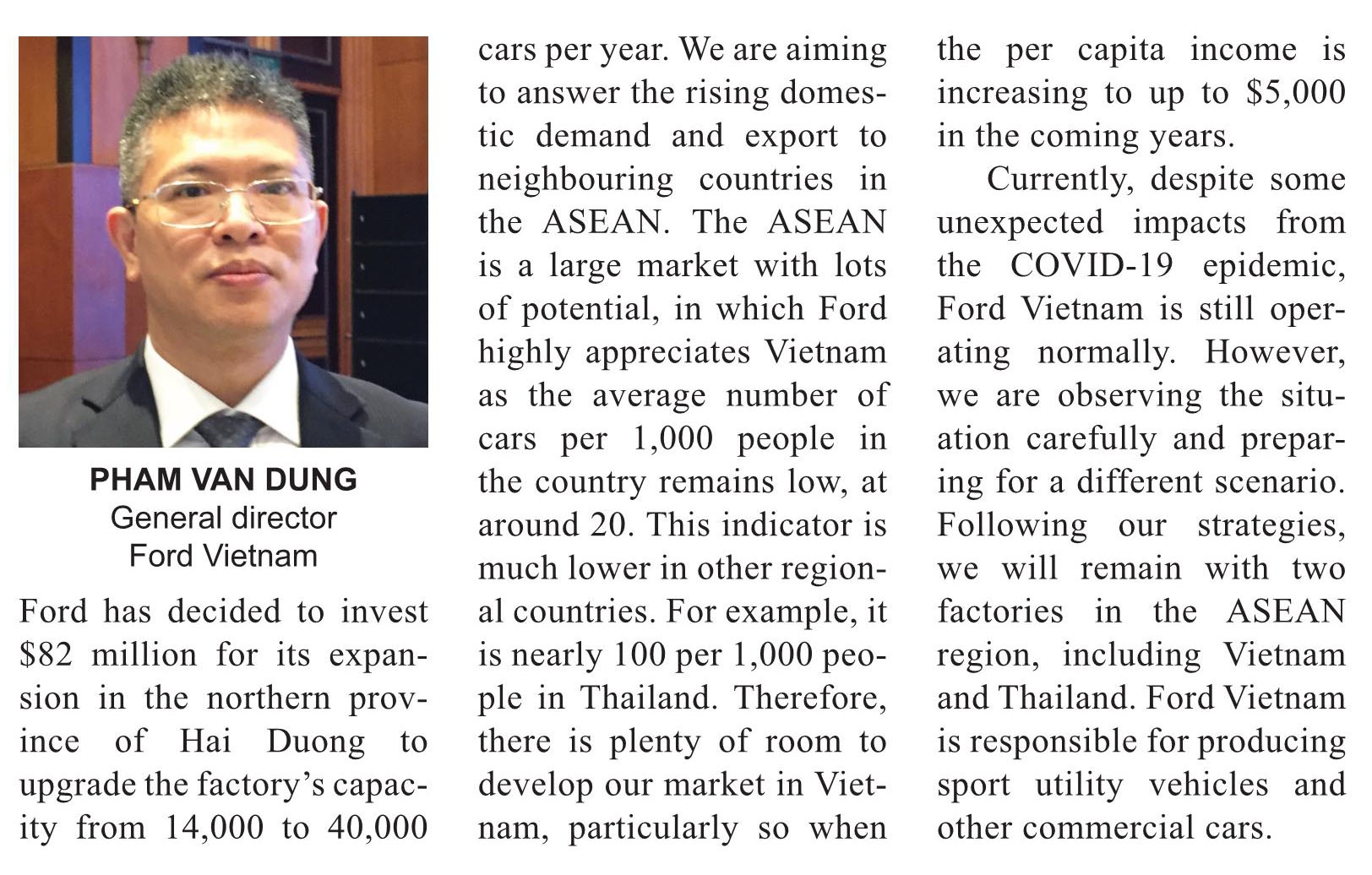 |
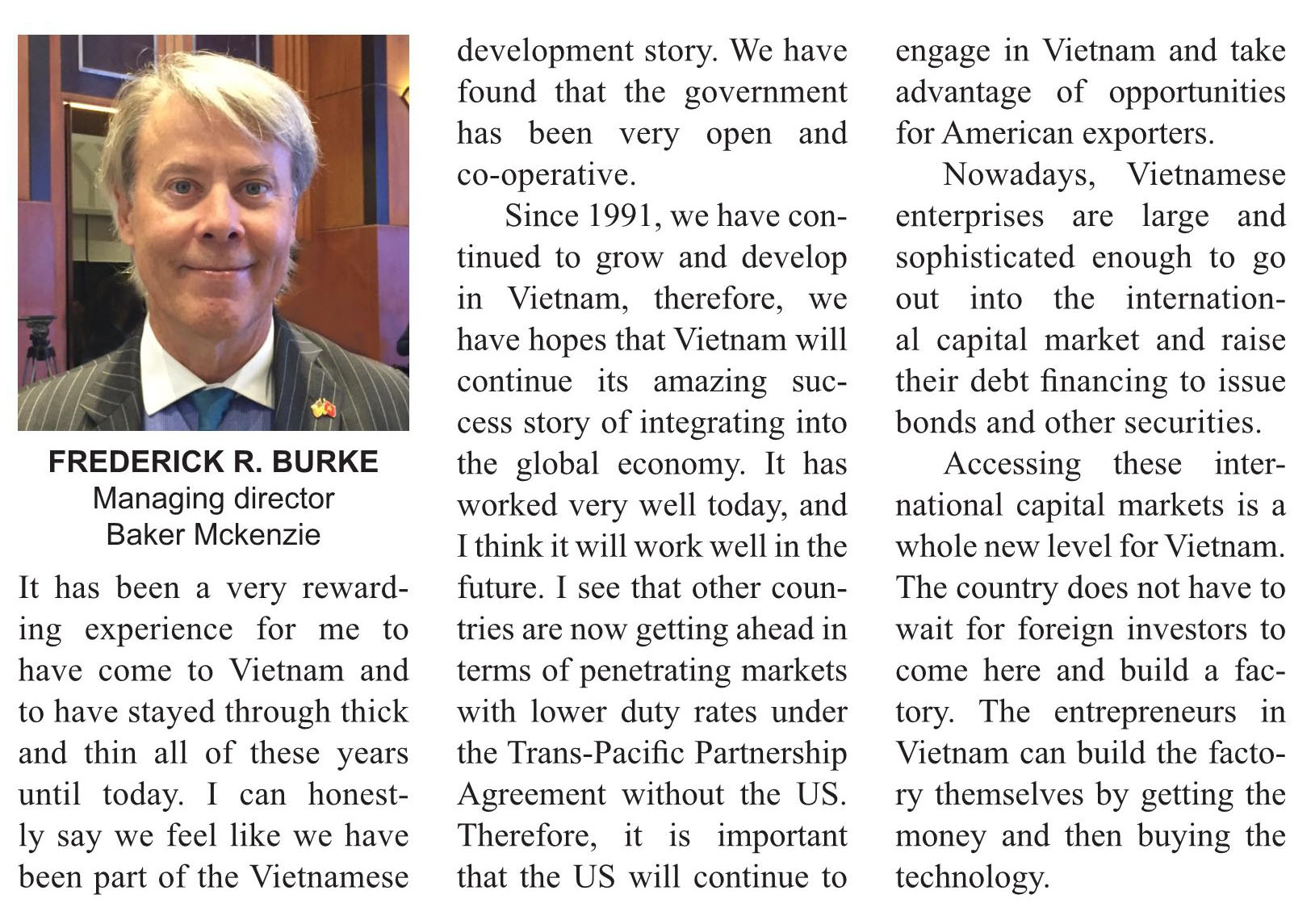 |
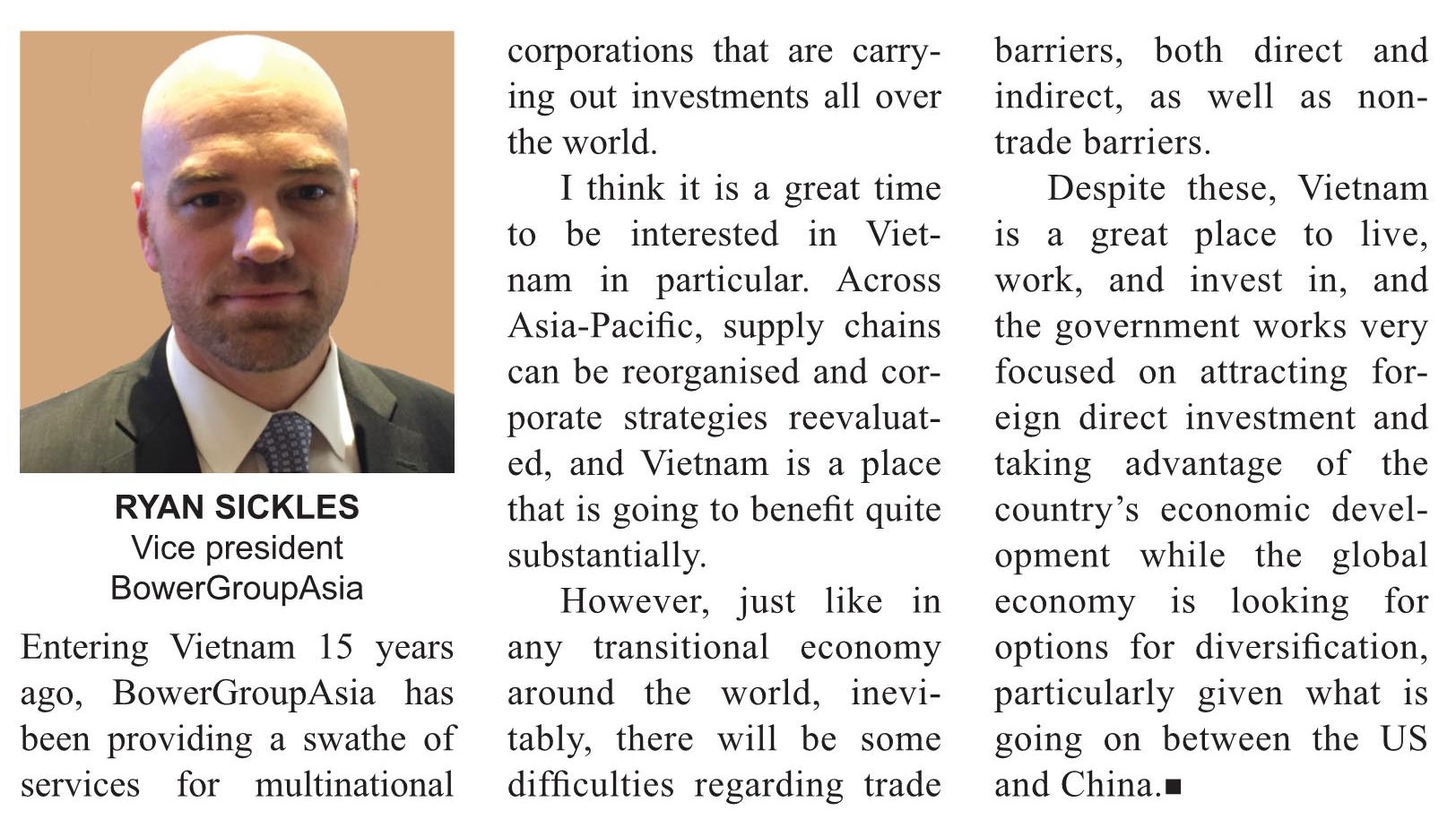 |
What the stars mean:
★ Poor ★ ★ Promising ★★★ Good ★★★★ Very good ★★★★★ Exceptional
Themes: Drive ASEAN Forward
Related Contents
Latest News
More News
- VNPAY and NAPAS deepen cooperation on digital payments (February 11, 2026 | 18:21)
- Vietnam financial markets on the rise amid tailwinds (February 11, 2026 | 11:41)
- New tax incentives to benefit startups and SMEs (February 09, 2026 | 17:27)
- VIFC launches aviation finance hub to tap regional market growth (February 06, 2026 | 13:27)
- Vietnam records solid FDI performance in January (February 05, 2026 | 17:11)
- Manufacturing growth remains solid in early 2026 (February 02, 2026 | 15:28)
- EU and Vietnam elevate relations to a comprehensive strategic partnership (January 29, 2026 | 15:22)
- Vietnam to lead trade growth in ASEAN (January 29, 2026 | 15:08)
- Japanese business outlook in Vietnam turns more optimistic (January 28, 2026 | 09:54)
- Foreign leaders extend congratulations to Party General Secretary To Lam (January 25, 2026 | 10:01)

 Tag:
Tag:




















 Mobile Version
Mobile Version